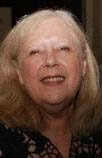After learning Jeannette Walls would be keynote speaker for the ASJA conference this year, I picked up her book "The Glass Castle." I put it on top of the pile, planning to read it once I finished Steve Berry’s new book "The Alexandria Link" and Victor Davis Hanson’s "The Soul of Battle." When my husband is out of town, I read a book each night. I’m strolling through Daniel Hoffman’s "Zone of the Interior" and several of his poetry books concurrently because I plan to write about him.
So I selected Walls’s book the other day to occupy my mind while I had lunch. I wasn’t really excited about reading another memoir. There are many of them these days. But she was speaking at the conference and I aimed to be able to put her in context.
I regret starting her book. Because once I did, I didn’t want to put it down. After lunch I hurried through the piles of paper and assignments on my desk, hoping to finish the book before my husband’s plane arrived late last night. I finished "The Glass Castle" about 1:30 a.m. It’s the sort of book that makes you feel a sense of loss when you turn the final page.
Walls makes her memories come alive by means of strong characters. There’s plenty of action, but the unfurling of her family members’ life stories propels the action. Walls had what you might call an “alternative upbringing.” Her parents were brilliant intellectuals, but at times, their parenting skills horrify the reader. Both her parents were wanderers in life, choosing a lifestyle that on the one hand, offered the children a look at art, literature, science, mathematics and philosophy that few can experience. On the other hand, the family experienced hunger, poverty and no small amount of pain.
A particularly wistful moment comes in a college classroom as a professor is talking about homelessness. Walls is afraid to share her own history with the class but she gets across the point her parents chose homelessness, because she learns as an adult her mother owns land worth millions of dollars. The professor asks what Walls could possibly know about homelessness. It’s a priceless moment in the memoir.
Walls’s narrative style is rapid fire, like a series of punches to the gut.
At poetry readings, I often remark my childhood was gloriously dysfunctional. I think Walls would identify with that description.
I’d recommend this book to any reader. It’s an enlightening journey for the reader, and it is never dull. The book sets a benchmark for any memoir I might select in the future. I am definitely looking forward to hearing her speak.
_____________________________
Please visit the links in the left column on this page for information about all aspects of writing and publishing.
Subscribe to:
Post Comments (Atom)



2 comments:
I'm fascinated by the process of writing a memoir. Perhaps especially since I can't remember interviews and conversations without a tape recorder. Memory is so mutable, particular because we reinvent our memories so often. It's a subject I often return to in my own writing, as I did when I wrote about Literary Memories in my blog.
I'm reading Dean's book "Conservatives Without A Conscience," and he says that he never records a conversation. But right after it is over, he writes down his notes. George Plimpton once told me that's also the way he handled it. Do such writers have better memories than I do? Or are they more willing to accept small differences in their "quotes."
I wonder how authors of memoirs do it.
Sally, I thought about that as I read Walls's book. I did think maybe she used some of the theories her father read to recreate conversations--he was heavily into physics and anything to do with energy, so using scholarly works he'd read probably came in handy.
Then there were the stacks of papers her parents accumulated. Her mother was an aspiring writer, and sounded like a pack rat when it came to throwing sketches and writings away.
When I wrote my own memoir, one of my best assets was my daily agenda. I've kept one of those for 20 years. My daughters have fun sometimes reading what I was doing close to the dates they were born on.
Relatives are great sources too. My mother actually helped recreate the day my youngest brother died, remembering things I'd forgotten.
Another asset for me was journaling. Once our daughter had been sick for several months, she and I both kept a journal.
I also do what Plimpton did--often, if I've had a memorable experience, I write it down in my notebook. Those experiences often become poems, but of course, you can lie with abandon when you're writing poetry.
Always happy to see you here--Kay
Post a Comment